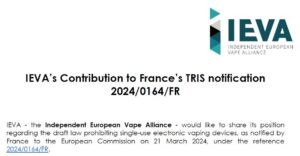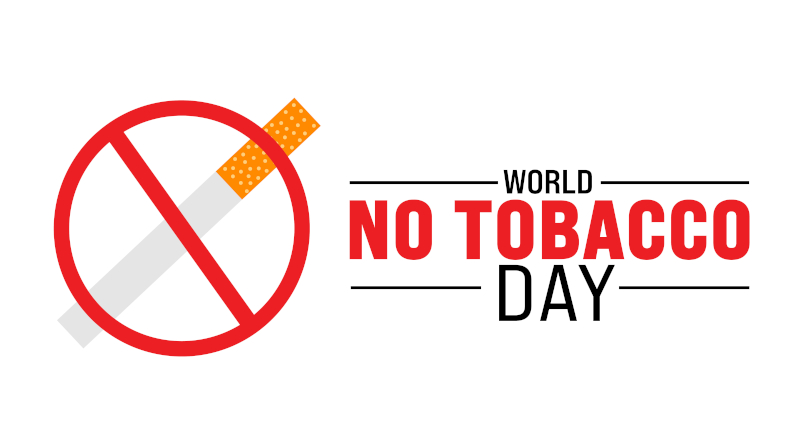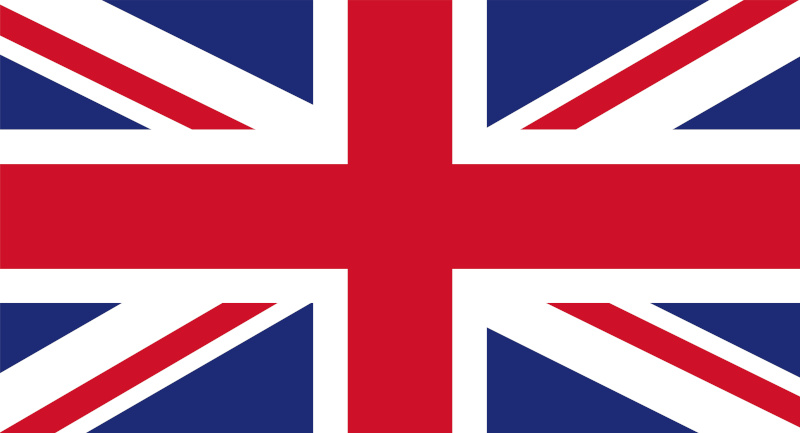
IEVA – the Independent European Vape Alliance – would like to share its position regarding the draft law prohibiting single-use electronic vaping devices, as notified by France to the European Commission on 21 March 2024, under the reference 2024/0164/FR.
According to the statement of grounds submitted by the French authorities, the draft law intends to “prohibit the manufacture, keeping for sale, […] sale, distribution […] of electronic vaping devices” that are prefilled and cannot be refilled and whose battery is not rechargeable. This prohibition is justified by “the need to ensure a high level of public health protection, especially among young people”.
IEVA would like to address some of the arguments presented to justify this ban, and point at the unintended consequences that may arise if it is implemented, in particular the rise of dangerous and unregulated black market products.
- Harm reduction and smoking cessation opportunities brought by vaping
Peer-reviewed independent studies have shown that vaping products – disposables or not – are 95% less harmful than combustible tobacco cigarettes. The harm reduction potential of vaping has been evidenced by a number of reputable publications (Royal College of Physicians, British Medical Journal, Institut Pasteur, etc.). Further scientific research highlights the critical role of vaping in helping adult smokers quit tobacco. A 2024 Cochrane review of 88 studies showed that nicotine-containing vaping products were the most successful method of achieving tobacco cessation for adults. This potential was recognised twice recently by the European Parliament: the reports on strengthening Europe in the fight against cancer (2022) and on non-communicable diseases (2023) both state that “electronic cigarettes could allow some smokers to progressively quit smoking”.
Disposable e-cigarettes are often a first introduction to vaping for smokers trying to quit. Rechargeable devices with refill tanks (“open systems”) can sometimes rebuff smokers; with disposable e-cigarettes, many of them have discovered vaping and have taken the step to switch to more sustainable refillable devices.
Banning these disposable devices on the pretext of a risk to public health, and in particular to young people, is a serious attack on the image of vaping products and is based, in the French public debate, on scientifically erroneous beliefs (e.g. gateway effect between vaping and smoking).
- Effective measures to prevent young people from vaping
France, like all 27 EU Member States, prohibits the sale of vaping products to anyone younger than 18 years old. The issue with youth uptake stems from a lack of adequate enforcement of this prohibition. IEVA’s position on the matter is clear: non-smokers should not start vaping, and underage people should not have access to vaping products. IEVA members must comply with a responsible marketing charter designed to ensure that young people do not access their products: for instance, packaging containing images that could catch the attention of children (candies, cartoons, superheroes, etc.) is prohibited.
Some measures can be implemented to properly enforce the law supposed to protect underage people, such as compulsory age verification systems and bans on the sale of vaping products in non-specialised shops. A licence system for vape shops can also be considered, with strict penalties for non-compliance.
All these measures can, and should, be implemented to address the youth uptake issue, rather than a disposable ban. Such bans penalise smokers trying to switch to less harmful alternatives, boost the sale of unsafe illegal products and do not hold any added value in the protection of young people from accessing vaping products.
See the whole contribution here:





